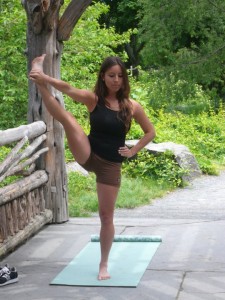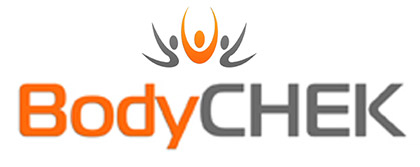In order de-stress, re-vitalise and reduce body , the main priority has to be to get your stress levels down. We all need some level of stress. For instance, we need gravity and exercise to develop our muscles. We need mental challenges to stop us from being bored. We need a level of nutritional stress to nourish our bodies.
 Most people today however, are overly stressed. A typical person will be over or under-exercising, may have an injury, eating a poor diet, a poor quality diet, going to bed too late and not getting enough sleep, working too many hours, using tap water, drinking alcohol on a regular basis, using toxic cosmetics and toiletries and I could go on and on, but you get the point!
Most people today however, are overly stressed. A typical person will be over or under-exercising, may have an injury, eating a poor diet, a poor quality diet, going to bed too late and not getting enough sleep, working too many hours, using tap water, drinking alcohol on a regular basis, using toxic cosmetics and toiletries and I could go on and on, but you get the point!
The first thing you can do is to ensure you are not over-training. If you are feeling ‘drained’ and not ‘invigorated’ at the end of your workouts, then that’s a clear sign that your workouts are too intense or too long in duration.
If so, you can reduce the intensity and/or duration of your workouts. More is not always better when it comes to exercise. Just because you might see obese people being tortured on reality fat-loss shows, by so-called experts, doesn’t mean that’s the way to go.
 You might consider some other forms of exercise in addition to your gym workouts. Exercise such as Yoga, Qi Gong and Tai Chi are just some of the forms of exercise that help to cultivate energy (what Paul Chek calls ‘Working-in’) as opposed to ‘working-out’ where you use-up energy.
You might consider some other forms of exercise in addition to your gym workouts. Exercise such as Yoga, Qi Gong and Tai Chi are just some of the forms of exercise that help to cultivate energy (what Paul Chek calls ‘Working-in’) as opposed to ‘working-out’ where you use-up energy.
So how do you cultivate more energy than you use when exercising? Well, when your muscles move they create tension through the fascial system and an electrical current, called a piezoelectric current is created. A piezoelectric current is another form of energy used to run your body. So if you exercise at a low intensity (work-in), you actually create more energy than you use.
A ‘working-in’ exercise is any exercise that you can perform at a low enough intensity that your breathing rate and heart rate do not increase. Therefore, you can turn any exercise into a ‘working-in’ exercise.
In addition to working-in exercises, you also need to consider your posture. If you have poor posture you’ll be using a lot more energy throughout the day than you need to. Your postural muscles will be working over-time to keep you upright. This is very stressful and causes fatigue.
I recommend you work on your posture in the gym and also receive advise on how you can improve your posture during ever day life, including advice on good ergonomics at work and home. Three hours of exercise in the gym per week will not undo 165 hours of poor posture outside the gym each week.
 You should also consider receiving advice aspects such as nutrition, food sensitivities, hormones, gastro-intestinal infections (which are very common today, to the left is a very common, yet very destructive bacteria, Helicobater pylori), detoxification protocols, non-toxic toiletries, perfumes, cookware, water filtration systems etc.
You should also consider receiving advice aspects such as nutrition, food sensitivities, hormones, gastro-intestinal infections (which are very common today, to the left is a very common, yet very destructive bacteria, Helicobater pylori), detoxification protocols, non-toxic toiletries, perfumes, cookware, water filtration systems etc.
Whilst any one thing may not seem such as big deal (like eating wheat now and again), they all add up and all need to be addressed to minimize unnecessary stress. One area that is huge today and should always be considered is gut health. Every client I have tested has tested positive for a parasite infection, bacterial overgrowth and/or a fungal overgrowth.
Also, every client I have tested has a number of food sensitivities. Gut infections and food sensitivities can have devastating affects on your health and can be a total roadblock to building muscle and losing fat.
 Last, but not least, the one thing most people do is to go to bed too late. Your hormonal systems are intricately tied into sunrise and sundown. If you go to bed too late (after 10pm), your body is unable to benefit from the time when your growth hormones should be at their highest.
Last, but not least, the one thing most people do is to go to bed too late. Your hormonal systems are intricately tied into sunrise and sundown. If you go to bed too late (after 10pm), your body is unable to benefit from the time when your growth hormones should be at their highest.
This is when your body should be repairing and building lean tissue and increasing your metabolic rate. If you go to be too late, you can never catch-up on that recovery time by sleeping longer and waking up later. Sundown and sunrise will not wait for you.
You should also be getting at least 8 hours of sleep per night on a consistent basis. Some people may require as much as 10 hours per night for optimal recovery and tissue regeneration.
If you need any further information on any of these points, or would like advice on any of these areas, please contact me by email at leigh@bodychek.co.uk or telephone on 0203 239 2470.
You might also wish to read, “Adrenal Fatigue: The 21st Century Stress Syndrome
” or “Why Zebras Don’t Get Ulcers“. They are both great books explaining Adrenal Fatigue and how they are linked to stress, tiredness and excess body fat.
